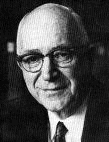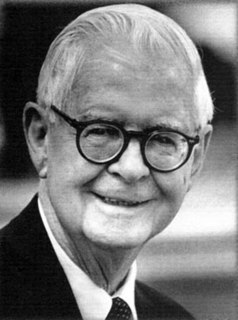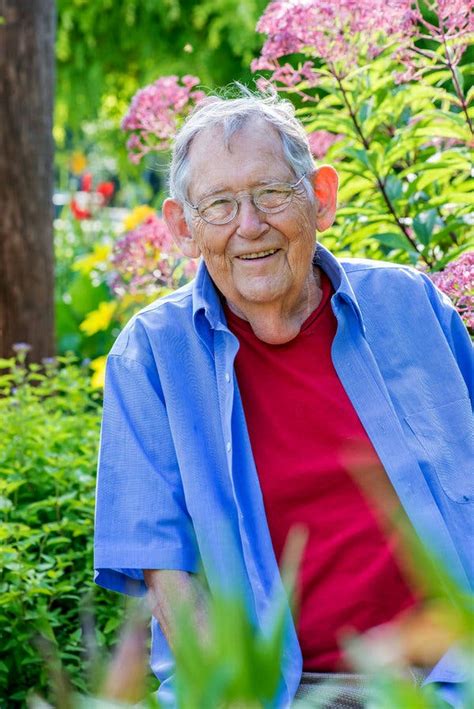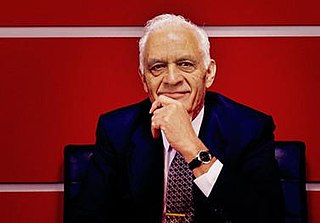A Quote by Peter Senge
Consider prejudice. Once a person begins to accept a stereotype of a particular group, that "thought" becomes an active agent, "participating" in shaping how he or she interacts with another person who falls in that stereotyped class. In turn, the tone of their interaction influences the other person's behaviour. The prejudiced person can't see how his prejudice shapes what he "sees" and how he acts. In some sense, if he did, he would no longer be prejudiced. To operate, the "thought" of prejudice must remain hidden to its holder
Quote Topics
Related Quotes
If a person is capable of rectifying his erroneous judgments in the light of new evidence he is not prejudiced. Prejudgments become prejudices only if they are reversible when exposed to new knowledge. A prejudice, unlike a simple misconception, is actively resistant to all evidence that would unseat it. We tend to grow emotional when a prejudice is threatened with contradiction. Thus the difference between ordinary prejudgments and prejudice is that one can discuss and rectify a prejudgment without emotional resistance.
The modification of prejudice takes a long time, and occurs as the result of a thousand things that happen to the prejudiced person - things he sees and hears and reads, people he talks to, and places he visits. Any given reformer must be content to take a small and obscure place in a chain of cumulative pressures.
When we try to describe one person to another …, what do we say? Not usually how or what that person ate, rarely what he wore, only occasionally how he managed his job—no, what we tell is what he said and, if we are good mimics, how he said it. We apparently consider a person's spoken words the true essence of his being.
Prejudice is of ready application in the emergency; it previously engages the mind in a steady course of wisdom and virtue, and does not leave the man hesitating in the moment of decision, skeptical, puzzled and unresolved. Prejudice renders a man's virtue his habit; and not a series of unconnected acts. Through past prejudice, his duty becomes part of his nature.
Show me a person without prejudice of any kind on any subject and I'll show you someone who may be admirably virtuous but is surely no gardener. Prejudice against people is reprehensible, but a healthy set of prejudices is a gardener's best friend. Gardening is complicated, and prejudice simplifies it enormously.
We live amid falling taboos. In our crowded little hour of history we have seen how the prejudice of religion no longer can bar the way to the White House. Some of you may live to see the day when the prejudice of sex no longer places the Presidency beyond the reach of a greatly gifted American lady. Long before them, I hope you will see a woman member of the Supreme Court of the United States. In Congress and in our State Legislatures we need more women to bring their sensitive experience to the shaping of our decisions.
O prejudice, prejudice, prejudice, how many hast thou destroyed! Men who might have been wise have remained fools because they thought they were wise. Many judge what the gospel ought to be, but do not actually enquire as to what it is. They do not come to the Bible to obtain their views of religion, but they open that Book to find texts to suit the opinions which they bring to it. They are not open to the honest force of truth, and therefore are not saved by it.
Prejudice ... is a subjective emotion which expresses itself upon others only because of an inner necessity for release. The object is irrelevant and opportune. The person who feels prejudice is the victim of himself and his own unhappiness and dissatisfaction. Life is not what he wants it to be and it has not been what he wishes it had been.





































